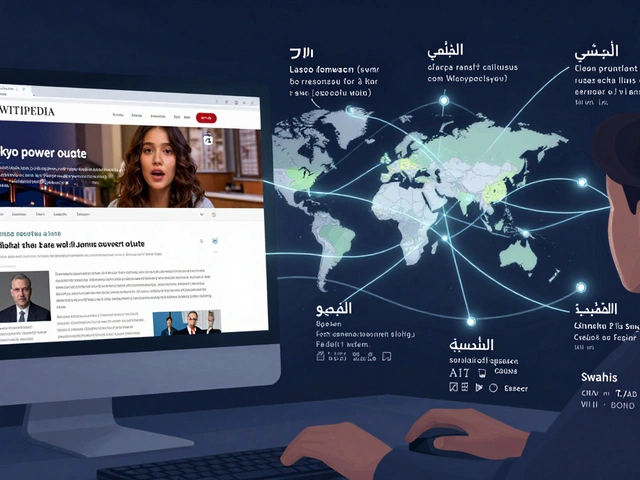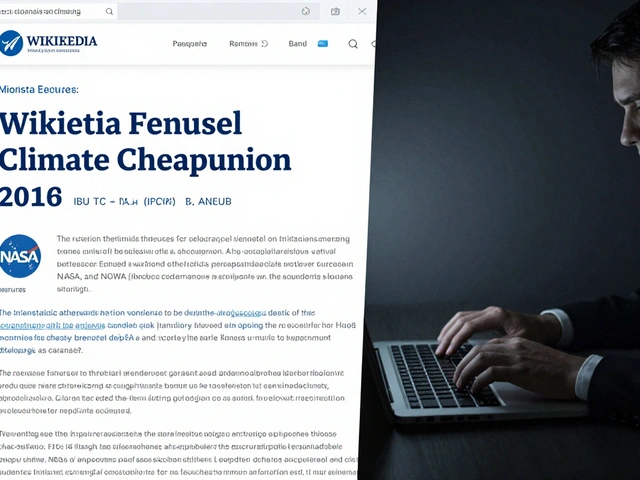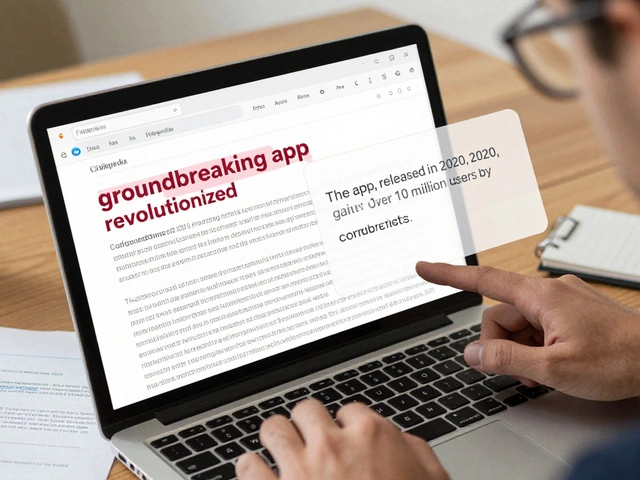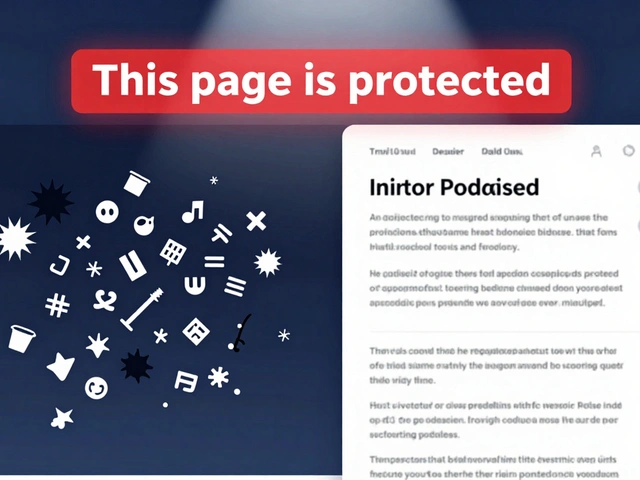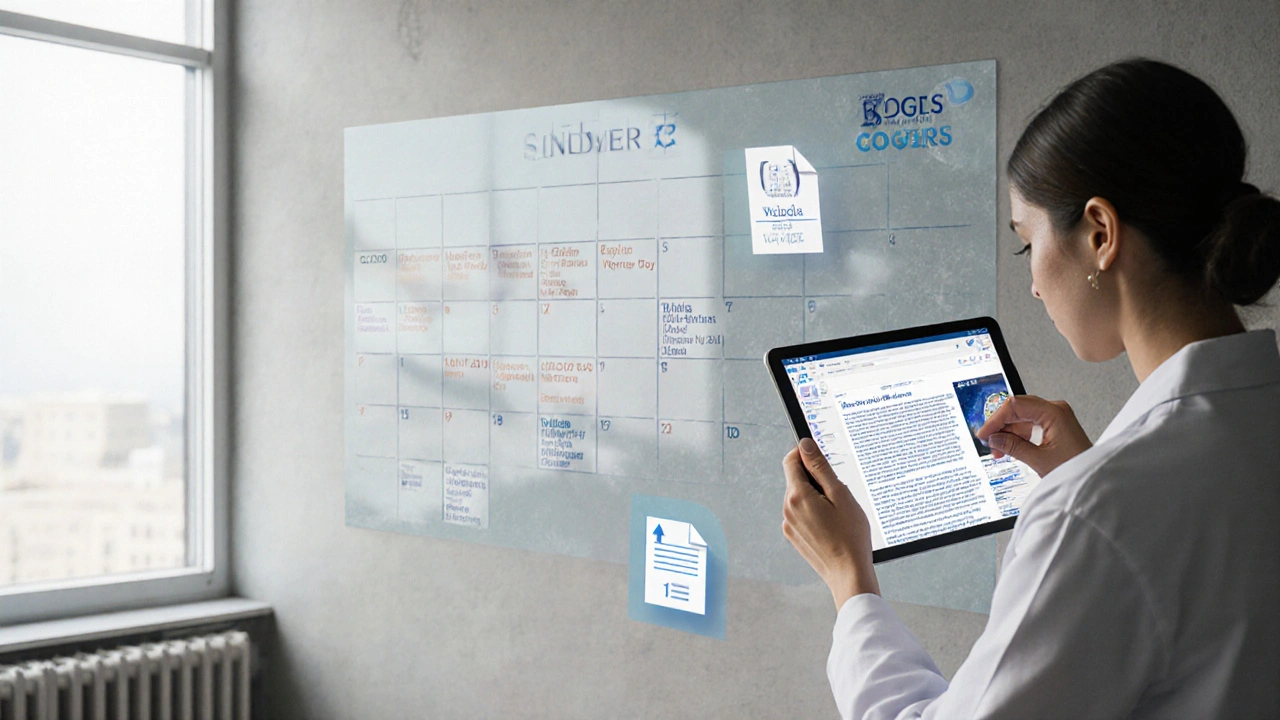
Wikipedia doesn’t run on press releases. But if you’re trying to get real media attention for a new study, product launch, or cultural moment tied to Wikipedia - timing matters more than you think.
Why Wikipedia Announcements Fail (And How to Fix Them)
Most organizations send out press releases about Wikipedia edits or new articles the moment they happen. A university announces a new research page. A nonprofit adds its annual report. A tech company launches a tool that integrates with Wikipedia. Then they wait. And wait. It rarely works. Why? Because Wikipedia isn’t a news site. It’s a living archive. Journalists don’t chase every edit. They chase stories that fit into larger trends, events, or cycles. If your announcement lands on a Tuesday in mid-October, it gets buried under election coverage, holiday shopping prep, and back-to-school headlines. The fix? Align your Wikipedia update with the editorial calendar of major newsrooms - not your own internal timeline.When Do Journalists Actually Pay Attention to Wikipedia?
Wikipedia’s most covered moments aren’t random. They follow predictable patterns tied to real-world events. Here’s what actually gets attention:- Anniversaries - The 50th anniversary of a major event? Wikipedia pages on that topic get 300% more traffic. Journalists look for those pages to explain context. If your organization helped create or update that page, mention it.
- Seasonal events - Tax season? Wikipedia’s tax law pages spike. Election season? Ballot measure pages get edited daily. Media outlets run explainers based on those pages.
- Major policy changes - When the U.S. Supreme Court rules on a case, Wikipedia’s related articles are updated within hours. Newsrooms use them as the first source for background. If your group was behind the edit, you get a quote.
- Global observances - International Women’s Day, World Environment Day, Pride Month. Wikipedia editors update related pages in advance. Media picks up on those updates.
Here’s the key: Don’t wait for the news to happen. Build your Wikipedia edit before the event. Then time your outreach to coincide with the media’s planning cycle.
How to Build an Editorial Calendar for Wikipedia Updates
Start with a simple spreadsheet. List the next 12 months. Mark:- Major global events (elections, Olympics, climate summits)
- Industry-specific dates (e.g., Black Friday, Cyber Monday, World Health Day)
- Anniversaries of relevant historical events (e.g., the 1972 Clean Water Act, the 1996 Telecommunications Act)
- Wikipedia’s own milestones (e.g., Wikipedia’s birthday on January 15)
Now, for each date, ask:
- What Wikipedia page needs updating to reflect current facts?
- Who in our organization has the expertise to edit it accurately?
- Can we add a reliable source (like a peer-reviewed study or official report) to support the edit?
- When should we notify journalists - 2 weeks before, the day of, or right after?
Example: You’re a climate nonprofit. You know the UN Climate Change Conference (COP30) is in November 2025. You don’t wait until the conference starts. You update Wikipedia’s “Climate Change Mitigation Strategies” page in early October with the latest IPCC data. Then, on October 20, you email journalists who covered COP29: “We updated the Wikipedia page on mitigation strategies with 2025 projections. It’s now the most cited source in the media on this topic. Want a quick breakdown?”
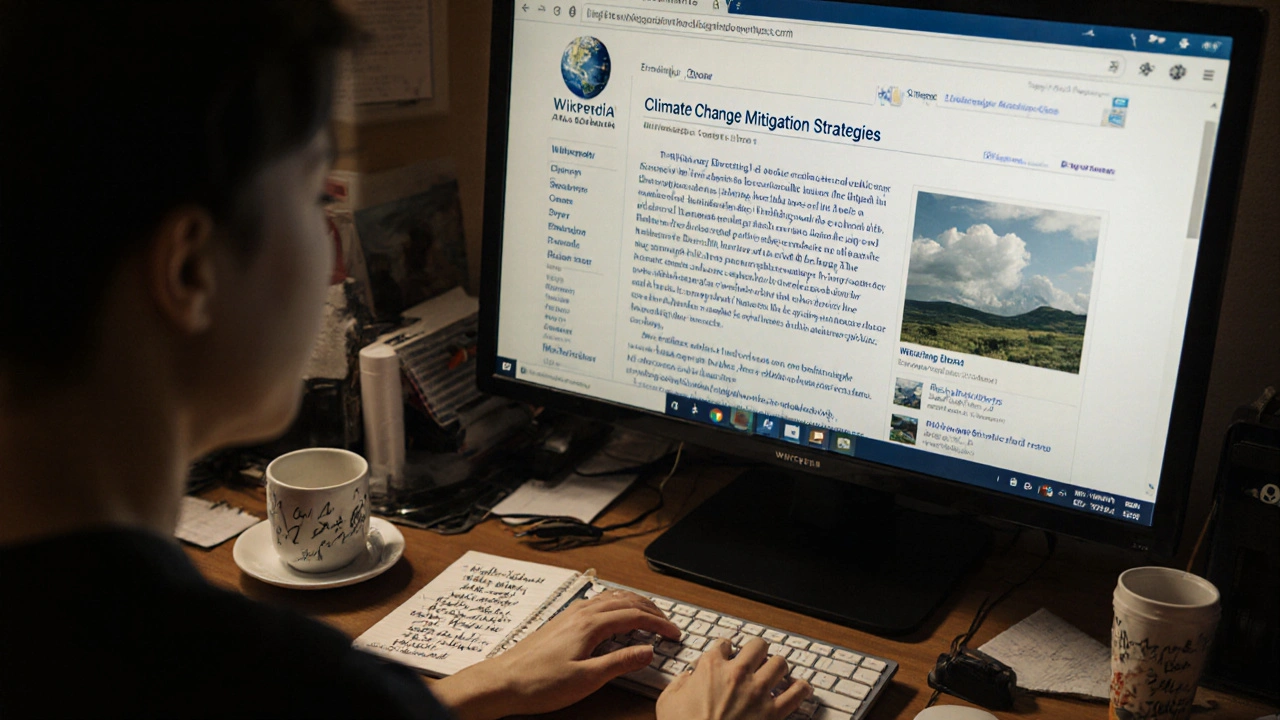
What Journalists Actually Want
Journalists don’t care that you edited a Wikipedia page. They care that your edit made their job easier. Here’s what they look for:- Accuracy - No opinion. No promotion. Just facts with citations.
- Completeness - Does the page answer the five Ws? Who, what, when, where, why?
- Reliability - Are the sources peer-reviewed, government, or from major institutions?
- Timeliness - Is this page updated within the last 30 days? If not, it’s ignored.
When your edit checks these boxes, journalists start using it. And when they use it, they cite it. And when they cite it, they sometimes quote you.
One public health agency in Wisconsin updated Wikipedia’s “Vaccination Rates by State” page with 2025 CDC data in March. In April, the Washington Post ran a story on vaccine hesitancy - and quoted the Wikipedia page as its primary source. The agency got a free, high-visibility mention - no ad spend, no pitch.
How to Pitch Wikipedia Edits Without Sounding Like a Bot
Your email subject line shouldn’t say: “We updated Wikipedia!” Instead, try:- “New data on [topic] just added to Wikipedia - could help your next story”
- “Wikipedia’s page on [issue] now reflects 2025 stats. Here’s what changed”
- “You covered [event] last year. We updated the Wikipedia background page - might help with follow-ups”
In the body, lead with the journalist’s work:
“Hi [Name], I saw your piece on rural broadband access last month. We just updated Wikipedia’s “Broadband Access in the U.S.” page with 2025 FCC data - including the new mapping tool from the NTIA. The page now has citations from three federal reports. If you’re planning a follow-up, this could save you time.”
Then link directly to the Wikipedia page - not your organization’s website. Journalists trust Wikipedia more than press releases.

What Not to Do
Avoid these mistakes:- Editing for promotion - Wikipedia bans promotional language. Don’t say “our groundbreaking tool.” Say “the tool, developed by [organization], is now used by 12 states.”
- Editing right before a deadline - Wikipedia edits take 2-5 days to be reviewed and approved. Plan ahead.
- Using unreliable sources - Blogs, press releases, and corporate websites don’t count. Use .gov, .edu, peer-reviewed journals, or major news outlets.
- Asking for links - Never say “Can you link to our site?” Journalists will ignore you.
Real Results: Who’s Doing This Right?
The Smithsonian Institution updates Wikipedia pages for every major museum exhibit opening. They do it 6-8 weeks ahead. Their edits are cited in The New York Times, NPR, and BBC Culture - always as background, never as promotion. The American Psychological Association updates Wikipedia’s “Mental Health Statistics” page annually. Each year, they get 3-5 media requests for interviews - all because their edit became the go-to source. Even small organizations benefit. A local history group in Madison updated Wikipedia’s “Madison, Wisconsin, Floods” page with 2024 data after a major storm. Two weeks later, the Wisconsin State Journal ran a story on climate resilience - and used their edit as the primary reference.Next Steps: Your 30-Day Plan
1. Find your top 3 Wikipedia pages - ones tied to your mission or work. Use Wikipedia’s “Pageviews Analysis” tool to see which ones get the most traffic. 2. Check their last edit date - If it’s older than 6 months, it’s outdated. Journalists won’t trust it. 3. Plan your next edit - Pick a date within the next 60 days that aligns with a major event. Update the page with three solid sources. 4. Reach out to 5 journalists - Find reporters who covered similar topics in the last year. Send a short, specific email with the link. 5. Track results - Use Google Alerts for your organization’s name + “Wikipedia.” See who picks it up.Wikipedia isn’t a platform you control. But it’s a platform you can influence - if you work with its rhythm, not against it.
Can I edit Wikipedia myself to promote my organization?
No. Wikipedia strictly prohibits promotional edits. If you try to add fluff like “leading innovator” or “award-winning,” your edit will be reverted. Instead, focus on adding factual, cited information - like new data, corrected statistics, or updated timelines. Your credibility comes from accuracy, not self-praise.
How far in advance should I plan a Wikipedia edit?
Plan at least 4-6 weeks ahead. Wikipedia edits go through a review process, and complex changes can take days to be approved. If you’re targeting a major event like an election or conference, aim to complete your edit 2-3 weeks before the event so it’s live when journalists start researching.
What sources are acceptable for Wikipedia edits?
Use reliable, published sources: peer-reviewed journals, government reports (.gov), academic publications (.edu), books from reputable publishers, and major news outlets like The New York Times, BBC, or Reuters. Avoid blogs, press releases, corporate websites, and social media. Wikipedia’s guidelines call these “secondary sources” - they’ve already been vetted.
Will editing Wikipedia get me media coverage?
Not directly. But if your edit becomes the most accurate, up-to-date source on a topic, journalists will use it - and sometimes quote you as the expert behind the update. The coverage comes from your credibility, not your promotion.
Is it worth it for small organizations?
Yes. Small groups often have deeper local knowledge than big media outlets. Updating a Wikipedia page about a regional issue - like a historic building, local policy change, or community health data - can make you the go-to source for local reporters. One small Wisconsin history group got cited in three newspapers after updating a page on a 1950s flood. No budget. Just good facts.
If you’re serious about getting noticed, stop chasing press releases. Start building the reference point journalists already trust. That’s how Wikipedia becomes your silent amplifier.
